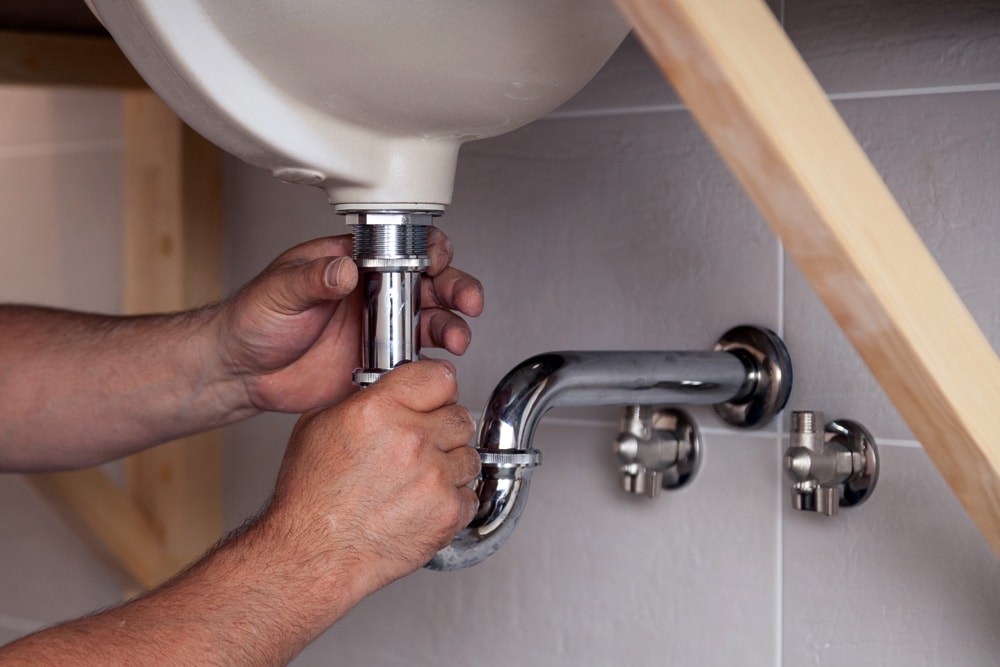
Ensuring Home Efficiency: Basic Plumbing Maintenance
Maintaining your home’s plumbing is crucial for preventing issues that can lead to costly repairs and water damage. Explore the fundamental steps of performing basic plumbing maintenance to keep your home’s plumbing system in optimal condition.
Regularly Check for Leaks and Drips
Start your plumbing maintenance routine by inspecting your home for leaks and drips. Check faucets, pipes under sinks, and around appliances that use water. Even minor leaks can waste water and lead to water damage over time. Promptly repair any leaks or drips you find to conserve water and prevent potential structural damage.
Inspect and Clean Drains Regularly
Clogged drains can cause slow water drainage and unpleasant odors. To prevent blockages, regularly inspect and clean your drains. Use a plunger or drain snake to clear minor clogs. For more stubborn blockages, consider using a natural or commercial drain cleaner. Regular maintenance of drains helps keep your plumbing system running smoothly.
Test Water Pressure and Address Issues
Proper water pressure is essential for the efficient functioning of your plumbing fixtures and appliances. Test the water pressure in your home by turning on faucets and monitoring the flow. If you notice low or inconsistent water pressure, it could indicate a problem with the pipes or a potential blockage. Addressing water pressure issues promptly helps prevent damage to plumbing components.
Check and Maintain Water Heater
The water heater is a critical component of your plumbing system. Regularly check for signs of corrosion, leaks, or unusual sounds. Drain the water heater tank periodically to remove sediment buildup, which can affect its efficiency. Performing routine maintenance on your water heater ensures it operates effectively and extends its lifespan.
Inspect Toilet Components for Proper Function
Toilets are susceptible to various issues, including leaks and running water. Periodically inspect the toilet tank for any signs of leaks. Check the flush mechanism to ensure it functions correctly and doesn’t waste water. If you notice any issues, replace faulty components promptly to prevent water wastage and potential water damage.
Seal and Insulate Pipes
Proper insulation of pipes is crucial, especially in colder climates. Insulating pipes helps prevent freezing during winter months, reducing the risk of pipe bursts. Additionally, insulating hot water pipes conserves energy and improves the overall efficiency of your plumbing system. Check for gaps and seal any exposed pipes to maintain a consistent temperature.
Address Minor Issues Before They Escalate
Small plumbing issues can quickly escalate into major problems if left unattended. Whether it’s a dripping faucet, a small leak, or a running toilet, address these minor issues promptly. Taking care of small problems prevents them from becoming costly repairs and ensures the longevity of your plumbing system.
Invest in Quality Plumbing Fixtures
The quality of your plumbing fixtures directly impacts their durability and performance. Consider investing in high-quality fixtures, such as faucets, showerheads, and pipes. Quality materials are less prone to corrosion and leaks, contributing to a more reliable and efficient plumbing system.
Educate Yourself on Shut-Off Valves
Knowing the location of shut-off valves in your home is essential in case of emergencies. Familiarize yourself with the main water shut-off valve and individual shut-off valves for appliances and fixtures. Being able to quickly turn off the water supply can minimize damage in the event of a leak or burst pipe.
Schedule Professional Plumbing Inspections
While regular homeowner inspections are valuable, scheduling professional plumbing inspections is equally important. Professionals can identify potential issues that may not be apparent during routine checks. Consider scheduling an annual plumbing inspection to catch and address any hidden problems, ensuring the long-term health of your plumbing system.
To explore advanced solutions for maintaining your home, including smart plumbing technologies, visit Perform Basic Plumbing Maintenance. These innovations can add an extra layer of protection to your plumbing system, offering real-time monitoring and efficient management.
